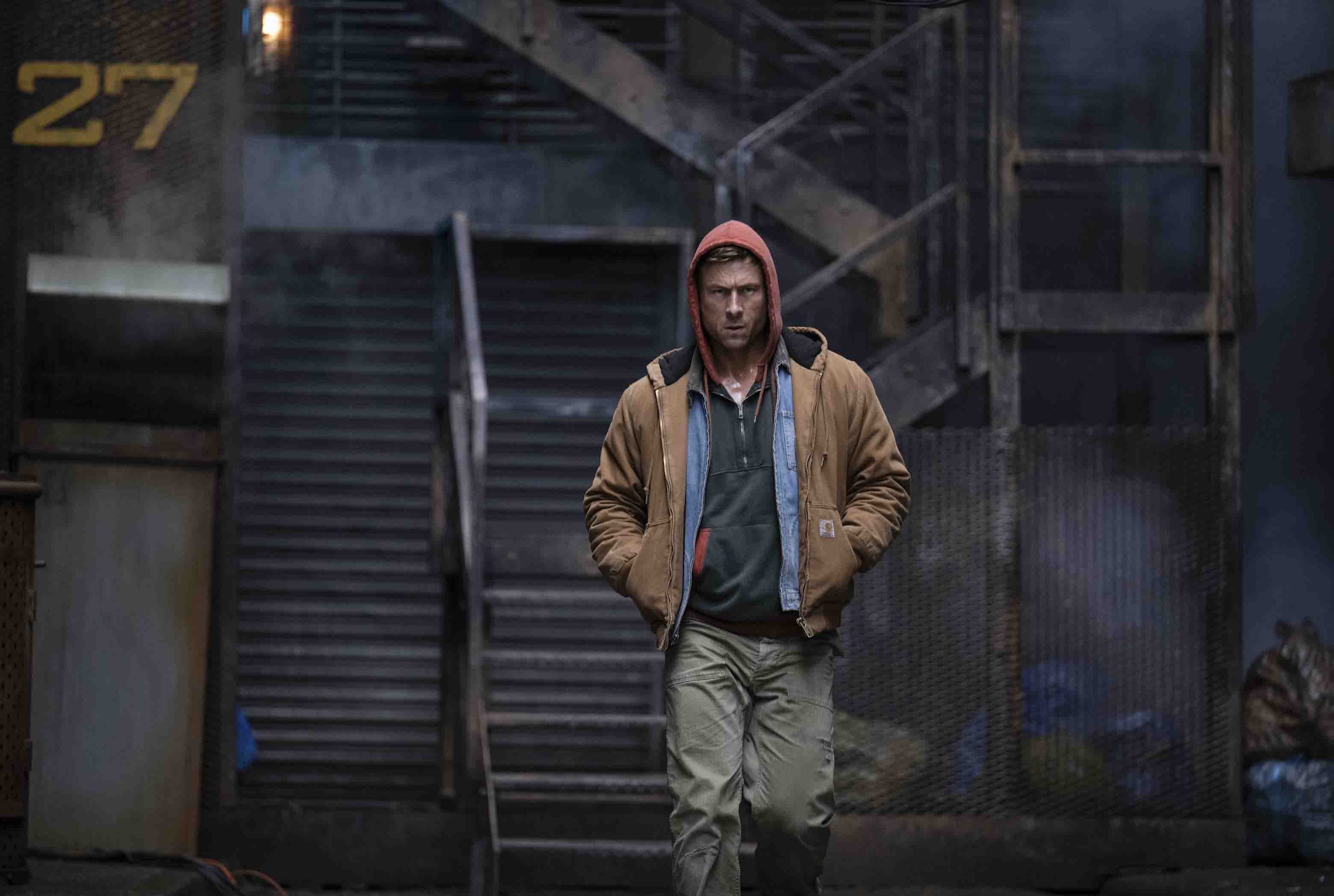There’s something vaguely superior about most dystopian movies. We can all point to terrible events and modes of thinking in our current world and convince ourselves things are only going to get worse—that’s easy. But when a filmmaker puts his most dismal vision for our collective future onscreen, we’re somehow supposed to pretend these terrible premonitions could never have occurred to little old us, instead hailing them as a feat of imaginative brilliance. An authoritarian government that sponsors ruthless reality TV shows in which desperate individuals compete for cash to pay their basic medical bills? That sounds pretty awful. But in 2025, it’s not really that far-fetched, and any action thriller built around an idea like that needs to be mechanically sound, and thrilling, by itself.
[time-brightcove not-tgx=”true”]
The Running Man, directed by Edgar Wright and adapted from Stephen King’s 1982 novel of the same name, is dark all right. It’s also garishly obvious, and though it grabs for laughs here and there, it has almost zero wit. Glen Powell plays Ben Richards, an honest working man trying to hold his family together in a futuristic hellhole dystopia. He’s just lost his grim factory job—there’s an allusion to some sacrifice he’s made for his coworkers, though he also has an anger-management problem—and his baby is very sick. His wife, Sheila (Jayme Lawson), works grueling hours as a waitress at a sleazy club for gross rich guys, the only place she can make any money, though the couple still doesn’t have enough to procure the “real” drugs that will save their daughter. In this grim futureworld, only useless, fake medications are available to the poor—everything else is out of reach.
Read more: The 20 Best Stephen King Adaptations, Ranked
Ben is out of options, which is why he decides to try out for one of those sadistic government-sponsored game shows; he’s so fit and hunky and rage-fueled that he lands a spot on the most dangerous one, a fight-to-the-finish marathon called The Running Man, in which a trio of contestants, presented to the audience as violent, worthless enemies of society, are sent out into the world to outrun a gang of ruthless hired hunters. There’s also an audience-participation element: viewers are encouraged to spot the contestants in the wild and alert the authorities. (“Record-Report-Reward” is one of the show’s slogans.) If Ben can evade the hunters for 30 days, he’ll win a huge pile of “new dollars”—enough to catapult him into the top 1% of global wealth, according to the grand pooh-bah of this entertainment enterprise, Josh Brolin’s weaselly Dan Killian, who’s certain that Ben’s hot bod, matched by his equally hot temper, will make for great television.
Of course, Ben is being grossly misled; the game is rigged, and though he sort of knows it, he thinks he might be able to win anyway. Powell telegraphs Ben’s doggedness with powerful gestures: He squints and glowers; his chin juts out just so. After dropping by to visit an old pal (a world-weary William H. Macy) and pick up some cool disguises, he tries to slip into anonymity, first in New York City, then in Boston, and finally in the Maine countryside. Everyone, from The Running Man’s razzle-dazzle host (Colman Domingo), to a vapid young woman whose car he tries to commandeer (Emilia Jones), to the most ruthless of the show’s hunters (Lee Pace in a stretchy khaki mask), wants to see him fall. Ben runs, a lot. He grimaces. He runs some more. The action, messily blocked and shot, is cartoony in an exhausting way.
The Running Man is one of those pictures that’s supposed to be fun even as it means something. It’s about the importance of family, but only in the most sentimental way. (Ben’s wife and daughter are introduced briefly at the beginning before quickly being relegated to the symbol pile.) It’s about the horrors of living under an authoritarian regime, where your TV watches you back. It’s set in a world where the powers that be actually want people to starve, suffer, and die. Yet in Wright’s hands, these horrors feel like little more than convenient backdrop material. This is the second time King’s novel—originally published under his pen name Richard Bachman—has been filmed, and if the 1987 version, starring Arnold Schwarzenegger, featured more than its share of cheesy faux-futuristic backup dancers in day-glo Spandex, it also had plenty of juice. And for all its synthy goofiness, it still manages to feel more relevant than this new incarnation. When the showrunner in the earlier film, played by Richard Dawson, barks an order to an underling—“Get me the Justice Department—Entertainment Division!”—it’s as if he’d seen straight into our own lawless present. Plus, it’s just a great line.
Wright has made some charming and entertaining pictures, among them the ramshackle zombie comedy Shaun of the Dead, from 2004, and a delightful 2021 documentary, The Sparks Brothers, about brothers Ron and Russell Mael, otherwise known as the art-pop duo Sparks. But at his worst, he’s also capable of a kind of mean-spirited smirkiness, and there’s some of that in The Running Man. (One of Ben’s fellow contestants, a harmless nerd played by Martin Herlihy, meets a blunt, humiliating end that’s probably supposed to be funny but makes no sense.) Even beyond that, The Running Man is just a slog. Powell’s Ben runs and runs, occasionally breaking a light sheen of sweat, yet you never feel there’s anything at stake. He’s hardly the pissed-off everyman hero he’s set up to be. Instead, he’s just running on empty, in a movie that’s running in circles.

